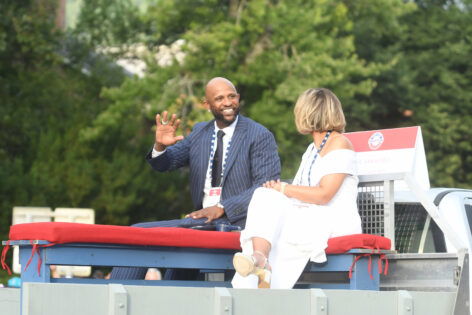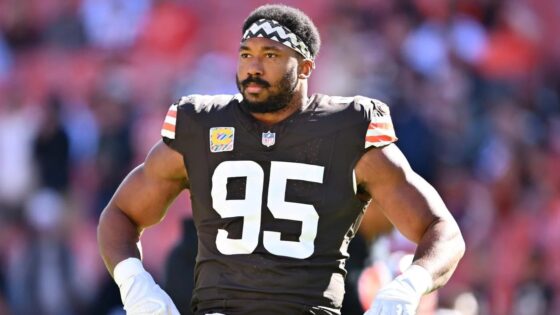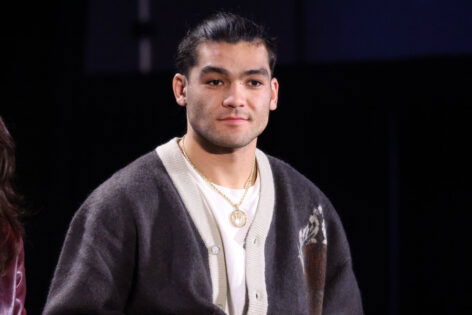In an era when pitchers are as likely to trend for tattoos as they are for strikeouts, CC Sabathia did both—and still managed to lead with grit, not gimmicks. Towering presence, electric arm, and a career that outlasted trends, Sabathia was more than a power lefty; he was a cultural figure who brought Vallejo pride to Yankee pinstripes and left hitters and doubters equally humbled.
But for all the headlines about contracts, championships, and comeback stories, few dig into what shaped the man beneath the brim. Behind the fastballs and front-page moments lies a legacy rooted in working-class resilience and multigenerational strength. CC Sabathia’s story isn’t just about making it big—it’s about where he came from, who raised him, and how his roots kept him grounded while the world tried to label him by numbers.
Where is CC Sabathia from? What is his ethnicity and nationality?
Carsten Charles ‘CC’ Sabathia was born in Vallejo, California, to hardworking parents with deep roots. His nationality is unequivocally American, raised in an economically challenged, culturally rich American community. His ethnicity is African‑American and also carries French Creole ancestry from paternal Louisiana roots. These identities subtly shaped his understanding of resilience, pride, and representation in baseball. His upbringing in Vallejo’s Crest neighborhood rooted his worldview and competitive spirit significantly.
Sabathia has often spoken candidly about growing up in a predominantly Black American community in Vallejo. He contrasted that experience with mainstream baseball culture and encountered subtle challenges regularly. In his own words, discussing police encounters illustrated childhood vulnerability: “When you’re Black in those situations, you can do everything right and still be a split‑second from disaster.” Those moments informed his leadership and empathy toward younger Black athletes striving in baseball. He carried his background with dignity and awareness throughout his lengthy MLB career.
MLB, Baseball Herren, USA All Star-Red Carpet, Jul 9, 2019 Cleveland, OH, USA American League pitcher CC Sabathia with his family on the red carpet prior to the 2019 MLB All Star Game at Progressive Field. Mandatory Credit: Charles LeClaire-USA TODAY Sports, 09.07.2019 13:49:30, 13021357, MLB, NPStrans, CC Sabathia, Progressive Field, American League, TopPic PUBLICATIONxINxGERxSUIxAUTxONLY Copyright: xCharlesxLeClairex 13021357
As an African‑American pitcher in Major League Baseball, Sabathia became part of a declining demographic segment. He acknowledged that when he debuted in 2001, Black players were more numerous than in later decades. He used his platform to highlight racial representation issues within baseball and society publicly. His advocacy reflects not only his personal heritage but also the obligations he felt toward inclusion. Thus, nationality and ethnicity became personal drivers in his post‑playing public voice.
Sabathia’s American nationality and Black Creole heritage strongly influenced his charitable and communal outreach initiatives. Through PitCCh In Foundation, he invested in underrepresented youths, mirroring his own experience from Vallejo. His identity shaped his engagement with issues of race, resilience, and mentorship deeply. His legacy combines athletic greatness with cultural consciousness and impactful activism. His journey exemplifies how ethnicity and nationality can meaningfully shape both career and character.
In a league that often forgets where its players come from, CC Sabathia never let it slip his mind. He didn’t just pitch for the New York Yankees—he pitched for Vallejo, for representation, and for every Black kid who watched baseball and wondered if they belonged. His fastball carved up lineups, but his voice carved out space in a game that needed it. Nationality gave him the stage, ethnicity gave him the purpose—and together, they made a damn good innings.
What is CC Sabathia’s religion?
CC Sabathia has spoken about faith guiding him through his darkest battles, though he rarely brands organized religion explicitly. He shared candidly, “I never coach my kids… let them play … enjoy the game,” hinting belief in purpose over dogma. Faith became an anchor during his struggle with alcoholism, offering clarity and accountability beyond baseball statistics. His decision to enter rehab was supported by spiritual reflection and familial love deep rooted in belief. Though not overtly proselytizing, Sabathia’s faith shaped how he healed publicly and led privately.
Image: MLB.com
Over his career, Sabathia’s view of religion emphasized community, redemption, and personal transformation rather than ritual. He described alcoholism recovery as healing beyond sport, stating, “This disease has no color” in interviews. That perspective bolstered his vocal advocacy for mental health and sobriety among athletes and youth alike. His faith-inspired actions—family-first choices on‑field and off—earned widespread respect across baseball corridors. In public speeches and interviews, Sabathia framed faith as a quiet force behind his character and career resilience.
CC Sabathia didn’t just battle hitters—he battled stereotypes, setbacks, and his own demons with equal fire. Vallejo gave him his edge, baseball gave him his platform, and faith gave him the compass. In a sport that keeps asking where the next Black ace will come from, Sabathia answered by showing up, speaking out, and staying real. He wasn’t just built for the mound—he was built to matter. And matter, he did—on every level that counts.
The post What Is CC Sabathia’s Ethnicity and Nationality? Exploring His Family Roots and Background appeared first on EssentiallySports.



